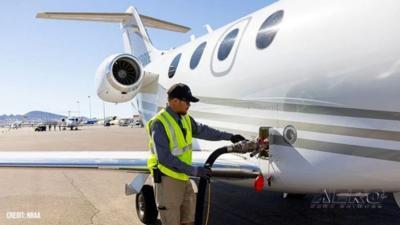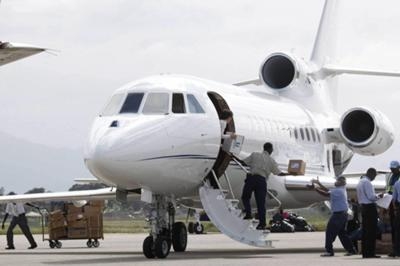Mon, Feb 03, 2025
GAMA and EBAA Study Warns Against Needlessly Restrictive Caps
A recent study revealed that business aviation has a nearly $104 billion impact on the European economy. However, EU proposals to cap short-haul flights and restrict airport slots threaten these benefits. The policies could jeopardize up to €120 billion in foreign investments and 104,000 jobs by 2030.

Commissioned by the General Aviation Manufacturers Association (GAMA) and the European Business Aviation Association (EBAA), the study affirms business aviation’s critical role in European connectivity. Without it, there would be no practical way to link remote areas, efficient medical transportation, or access smaller airports. The sector is also directly tied to upwards of a million jobs throughout Europe.
While one would think that these perks make government agencies want to support business aviation as much as possible, the EU’s new policies seem to be running in the opposite direction. Regulators have introduced proposals to limit short-haul flights and restrict the number of slots available for business aviation flights in some airports.
These changes don’t come without reason; business aviation is generally considered to generate significantly more emissions per passenger than other sectors due to its smaller passenger capacity and shorter flight distances. This fact has created plenty of public backlash and pressure to introduce policy reforms.

This point is where the conflict reaches a stalemate. “Policies that seek to constrain the growth of business aviation create implicit trade-offs between the environmental benefits arising from fewer flights and the foregone benefits associated with business aviation,” the study explained.
The research determined that the EU proposals could risk up to $125 billion in foreign direct investment (FDI) as well as more than 100,000 jobs over the next five years. Instead of these overly restrictive caps, EBAA Secretary-General Holger Krahmer argues, regulators “should focus on policies that support innovation, decarbonization, and competitiveness.”
One step that would satisfy both parties is increasing the utilization of sustainable aviation fuels (SAF). This could assist in decarbonizing business aviation while maintaining the current number of flights and their economic impact.
More News
Airplane Bounced About 3 Ft Then Touched Back Down And Then, With No Brakes Applied, The Airplane Began Veering To The Left Analysis: The pilot entered the airport traffic pattern >[...]
Aero Linx: British Microlight Aircraft Association (BMAA) The primary focus within all aviation activity is SAFETY. In all aspects of our sport SAFETY must come first, whether it b>[...]
From SnF25 (YouTube Edition): William Wynne Builds Practical Aircraft Engines on the Corvair Platform Seeking an affordable alternative to the traditional aircraft engine options, >[...]
How To Get A Story On Aero-TV News/Feature Programming How do I submit a story idea or lead to Aero-TV? If you would like to submit a story idea or lead, please contact Jim Campbel>[...]
From 2023 (YouTube Edition): Bridge of CiES CiES Inc. is a Bend, Oregon-based designer and manufacturer of modular embedded aircraft systems and sensors. The company’s fuel-l>[...]
 NTSB Final Report: Aviat A1
NTSB Final Report: Aviat A1 ANN's Daily Aero-Linx (07.08.25)
ANN's Daily Aero-Linx (07.08.25) Classic Aero-TV: Fly Corvairs Reliable Engine Alternative
Classic Aero-TV: Fly Corvairs Reliable Engine Alternative ANN FAQ: Contributing To Aero-TV
ANN FAQ: Contributing To Aero-TV Classic Aero-TV: CiES Fuel-Quantity and e-Throttle Systems Praised
Classic Aero-TV: CiES Fuel-Quantity and e-Throttle Systems Praised




